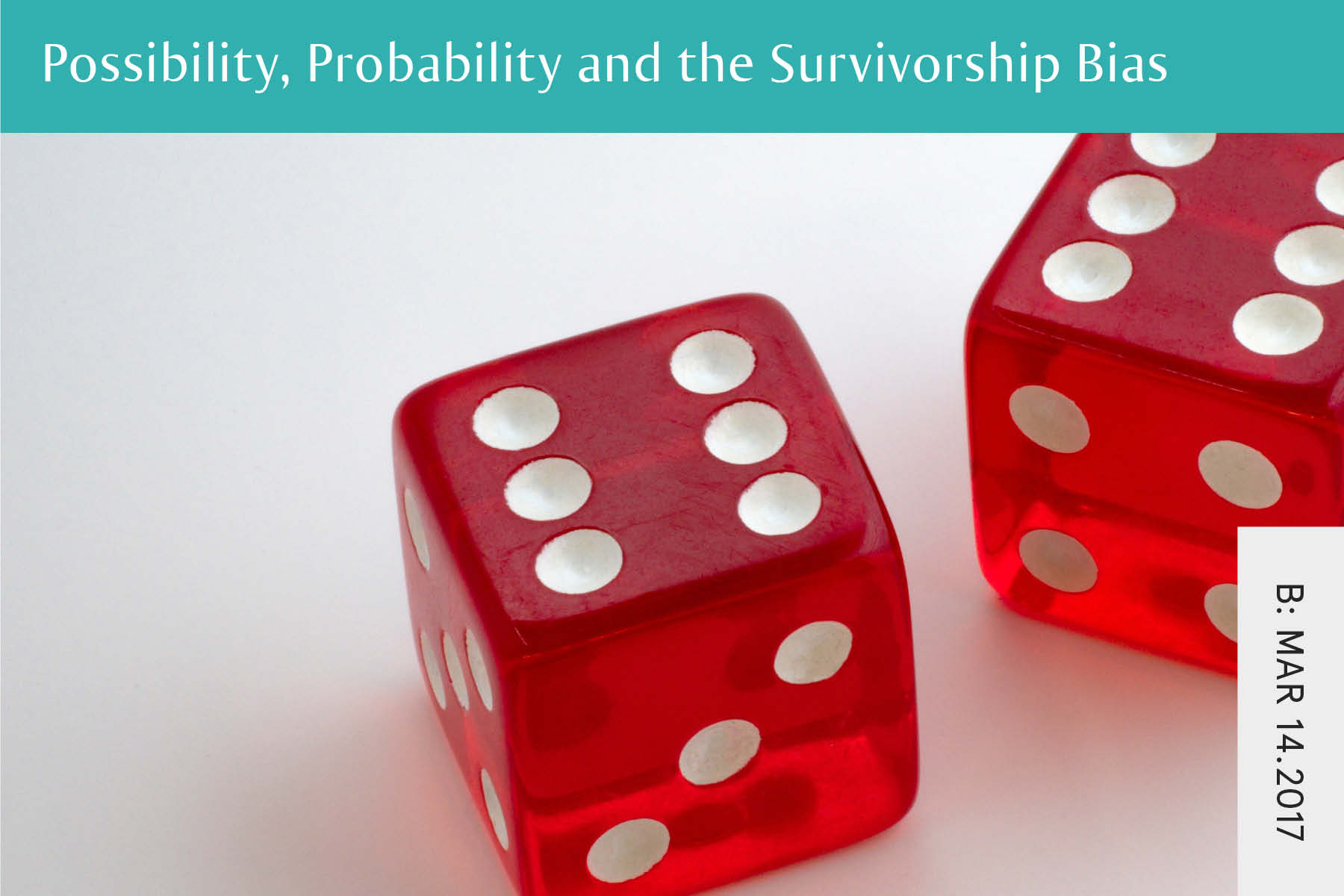

I haven’t read any of his books and I’m sceptical of some of the health advice I’ve heard him give, but he’s a skilled interviewer and has an eclectic mix of guests on his show.
One of the ideas I’ve heard him reference a number of times is the survivorship bias.
Survivorship bias is the logical error of focusing on the people or things that “survived” some process, but inadvertently overlooking those that did not, because of their lack of visibility.
This can lead to overly optimistic beliefs because failures are ignored.
You go on a website because you hear about some new diet or some new training regime. You look through and read the countless glowing testimonials. It’s filled with a collage of “before and after” photos, all showing these fantastic results.
The impression that this paints is that if you get on board with this way of eating or training, you too are likely to see these similar results.
The problem is, you have no idea how many people have tried this, failed and so never made the highlights gallery. For every success story, there could be 100 or 1,000 or 10,000 others who saw no significant improvement.
This isn’t just constrained to diets and exercise routines; the same is true from practitioners in this profession.
I see people talking about how they went from zero to six figures in six months. Or they went from a mailing list of 1,000 to 50,000 in the space of a year. Or how on their first product launch of an online course they made £128,000.
You see these stories enough and begin to think they are the norm. And so when these people have something to sell about how you too can have the same success, you want to jump at the opportunity.
But for every success story like this, how many others are experiencing the opposite? These kind of quick and meteoric rises are so small that they are a fraction of one percent of all those who have attempted success.
But because of the survivorship bias, people end up feeling like if they are struggling that they are the anomaly and that everyone else is “crushing it”.
In my own case, I qualified in 2008 and set up my business in 2009. I’ve been at this eight years and by lots of measures I still haven’t “made it”.
People get tempted in by the possibility of what could be and this clouds their judgement about the probability of this actually happening.
Yes you could drastically turn your health around in six weeks, but what would it look like if you approached this as a long-term plan over the next two years?
Yes you may become an Internet millionaire in a year, but how would you do things differently if the goal were to build a successful business over a 5-year period?
Now I’m an eternal optimist. I’m always dreaming big. But I’m also a realist and know that if our big dreams become morphed into our every day expectations, the most likely outcome for 99.9% of occasions is a lot of disappointment.
Don’t be fooled by the survivorship bias. Most anything in life that we want, takes time and effort and often a lot more of this stuff then we initially believe. But if you can enjoy the process and have realistic expectations from the beginning, it will be a more pleasant journey.
I’m a leading expert and advocate for full recovery. I’ve been working with clients for over 15 years and understand what needs to happen to recover.
I truly believe that you can reach a place where the eating disorder is a thing of the past and I want to help you get there. If you want to fully recover and drastically increase the quality of your life, I’d love to help.
Want to get a FREE online course created specifically for those wanting full recovery? Discover the first 5 steps to take in your eating disorder recovery. This course shows you how to take action and the exact step-by-step process. To get instant access, click the button below.
Discover the First 5 Steps To Take In Your Eating Disorder Recovery
Get started the right way and be on the path to full recovery and the freedom it will bring YOU.
Unlike other approaches focusing on just one aspect of recovery, this course shares a framework that demonstrates what full recovery is really about and gives you the tools to get there.
Get Instant Access!
Share
Facebook
Twitter